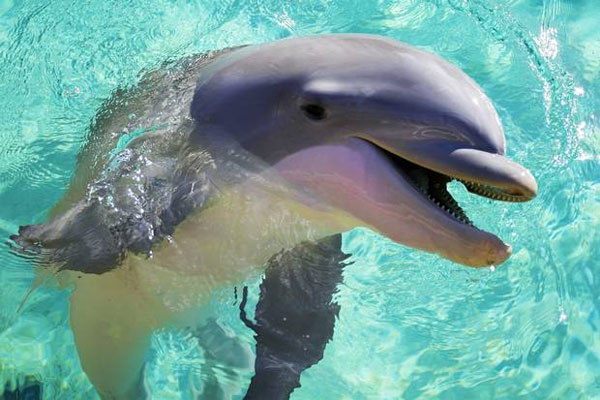Why are whales and dolphins hissing?
(Scientists claim that whales and dolphins whistle in delight 'like children' when they feel happy.
For captive whales and dolphins as well as wild ones, scientists observed them hissing when they were enjoying food. But this has been dismissed as a result of training or as a sign of communication.
But a recent study, published in the Journal of Experimental Biology on Tuesday, shows that mammals living in the ocean produce noises to express joy.
Sam Ridgway, president of the American National Marine Mammal Foundation, observed them mammals such as whales and dolphins for decades.
Realizing that they were hissing every time they were rewarded, Ridgway's wife, Jeanette, said their actions reminded her of the "happy children" and Mr. Ridgway began to study why there were noises. this.

Trainers working with dolphins and white whales in captivity tell them that they will be rewarded with a whistling sound.
But Mr. Ridgway notes that even without food, these mammals will hiss in response to the sounds associated with them.
And then even though there is no sound signaling 'reward' even if they have completed the task like deep diving, dolphins and white whales still hiss as a sign of victory .
As part of a study from San Diego Bay, California, two whales and dolphins were rescued, kept in captivity and trained in deep-sea diving, turning off a false siren by pressing a button. Meanwhile, the microphone in the underwater recorded sound.
While still in the water, they let out a squeak that signaled the victory immediately after turning off the horn, as well as just before floating to the surface,
When mammals, including humans receive rewards, the brain releases a neurotransmitter dopamine that creates pleasure.
The researchers measured the time when dolphins and whales produced a squeaky victory . Dolphins make a screeching sound about 151 thousand seconds after the reward signal and white whale about 250 thousand seconds later. It is considered a reaction to the increase in dopamine.
Mr. Ridgway realized that when dopamine was released between 100 and 200 thousand seconds, animals would be able to express joy.
He used the study to look at the cognitive ability of mammals that live in deeper depths.
'We think we have proven that the screech contains sentiment in , ' he said.
- Amazingly, dolphins receive whales
- Whales and dolphins are at risk of perishing
- Whales suffer from the death of their fellow human beings
- The chaotic dolphin fled when the killer whale ambushed
- Aerial performance of
- Why do whales 'commit suicide' series?
- Dolphins and whales cultivate the juveniles for many days
- 30 dolphins stranded in Brazil
- Discover new hybrid creatures between dolphins and whales
- Design wind turbines based on whales and dolphins
- Dozens of whales are stranded on the coast of New Zealand
- Dolphins rescue whales
 'Fine laughs' - Scary and painful torture in ancient times
'Fine laughs' - Scary and painful torture in ancient times The sequence of numbers 142857 of the Egyptian pyramids is known as the strangest number in the world - Why?
The sequence of numbers 142857 of the Egyptian pyramids is known as the strangest number in the world - Why? History of the iron
History of the iron What is alum?
What is alum?